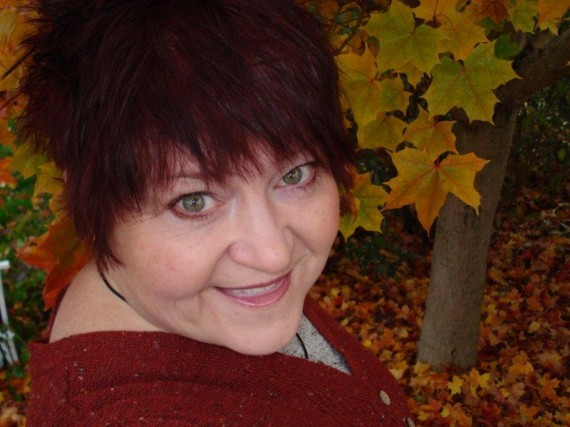by Karen Ball
Remember the musical Oklahoma? Gordon MacRae singing to, of all people, Rod Steiger: “Poor Jud is daid, poor Jud Fry is daid…”
Well, the way folks have been talking lately, I’m waiting for the new musical, “Digital World,” where a Gordon MacRae-esque editor will stand next to a book and sing out, “Poor print is daid, poor print books is daid, they’re lookin’ oh, so tattered and passé…”
Seriously, I keep hearing the rumblings:
Digital is taking over.
No one is buying print books.
Brick-and-mortar bookstores are closing every day.
The future of publishing is uncertain.
What does this mean for authors?
How will this change our contracts?
And on and on it goes. When the person sitting next to me on a flight several months found out I was in publishing, she asked me about this very thing. We had an interesting conversation about it all. Of course, I heard some of these same doom-and-gloom thoughts from her.
I just smiled, and pointed to her lap. “What are you reading there?”
She held up her book–not her Kindle, mind you, her book--and we talked about the author. Halfway into a sentence, she stopped, looked at the book, then at me.
And then she smiled.
“Now, look around us,” I said. “How many Kindles do you see?”
She hopped up and, on pretext of heading to the oh-so-spacious bathroom on the plane, took an informal poll. Upon her return, her smile was even broader. “Two. On this whole plane, only two.”
“How many books did you see?”
Smile shifts to grin. “Too many to count.”
“So is print dead?”
She settled back in her seat, hands caressing the cover of the book in her lap. “I don’t even think it’s sick!”
Our own Steve Laube brings a voice of much-needed reason to the whole discussion in an earlier blog post. Be sure you read the comments, too. Good stuff.
Yes, publishing is changing. Yes, e-books are on the rise. But no, print’s not dead. In fact, as my friend on the plane finally concluded, it’s not even sick. It’s just…changing. What gets published, and how it’s published are morphing even as I type. But we authors and editors and agents and most especially publishers need not fear those changes. Instead, let’s work to understand them, what’s behind them, and how we use them well to benefit all.





Even though I love my Kindle, and it’s been great to have been able to bring a variety of reading material with me on a road trip this week, the ease of access of the device will never replace the tactile and visual experience of print books. As a visually oriented person, I love to look at the covers, to see the colors, to appreciate the design of it . . . and to see them on my burgeoning bookshelves.
Just yesterday, I made the following analogy: reading something on an e-reader is like snacking on junk food; reading a real, print book is like sitting down to enjoy a favorite meal.
I got a Kindle for Christmas, and I love it. It’s not a book–it’s a personal library. And, yes, publishing is changing. I’m reading “An Affordable Ebook about Writing and Publishing Ebooks” by John Franklin, and he makes some valid points. It’s nice to know writers have more options these days.
As far as missing the print versions–There will always be a market for print versions. But I think the ereaders will be making a significant change in publishing. They’re already making a big impact on how we read. More and more people, especially those of us who love to read, will be using ereaders. Compare the cost of the printed version to the e-version. Plus I like the storage–less space.
A month or so ago, I was with my son on a bus with a bunch of 7th graders. I looked around at one point and within my view, I saw for kids reading. Three were on kindles, and one was reading an actual book. I know this isn’t a scientific study (just like your look around the airplane wasn’t) but it does give another perspective.
As a collector of old books, a lover of all books, and a hopeful author of tuture books, I have fretted. My daughter, the voice of reason, told me: People will always love books. I am so relieved to hear a voice in the industry say the same thing. Thank you!
I’m a tech junkie who likes to lick my finger and turn actual pages. And Karen, nice! I love the way you made your point.
My personal library contains books which spark memories at a glance and without opening their covers, my mind wanders back to a time or event, real or imagined. Over the years, however, ‘picture’ books (for research purposes) have overtaken my shelves while my once- or twice-read fiction has found a home in plastic bins.
My tbr pile of print books is growing as is the list on my Sony eReader. I still like to cuddle on the sofa and hold a print book in my hands, yet those times of free reading have slowly diminished and I must grab bits of time whenever I can. The mobility of my eReader is perfect for this and the side lights aren’t enough to keep hubby awake while I happily read in bed.
The main reason I bought an eReader was to upload my manuscripts for proofreading purposes. I can’t deny the small thrill I receive seeing them listed beside the real novels. 😀
Anita Mae.
I have and do agree with you completely, but have not been able to articulate it nearly as well.
Nicely done; profoundly stated!
Thank you for being a voice of reason and common sense.
I was on three plane rides this week. In the first I sat next to a woman with a Kindle. She was in love with hers.
But more interesting was walking through the St. Louis airport (due to a layover and extra delay) and taking specific note of devices and reading habits. There were a LOT of lap tops open. There about fifteen iPads or tablet devices. But the majority of readers held a book in their hands…all ages.
Print is far from dead. And even if the pundits are correct and that 50% of all book sales are digital by 2015, that still means one half are print. Never forget that half at the risk of losing one half of your potential market.
Steve
I spoke with an editor the other day and he told me that digital books (Kindle, etc.) only make up 5% of book sales. That’s hardly critical mass. A lot of what we hear is marketing from the Kindle folks.
Exactly! That editor is correct. The high end of the spectrum has ebook sales at around 10%. Lee, you are quite insightful to notice the origin of the press releases. Of course Amazon is going to have positive ebook sales volume news!
Critical mass is far from happening. Not to say that it won’t in the future.
Great post. Thanks for sharing about the “health” of print books :)0
There’s a funny thing about electronic books. Whenever I truly love one I get my heart set on getting a print version of it as well, to see on the bookshelf in my library like an old friend. I love having great books on hand for company, who wander in there and grab a book to read by the gas fireplace. I like to read e-books on the go, or read nonfiction tips in an e-book with other file folders open to take notes. On the road, I read e-books on an Acer Mini with Kindle for PC and find it very easy. But it’s awfully hard to get comfy in bed with an e-book. I want to feel free to doze off–and not have to turn off a machine when I get sleepy. None of this is stopping me from creating my own e-books, however!
My Kindle goes to sleep when it’s not used after, say, five minutes.
And actually the kindle doesn’t use power at all, even when it’s “on” because it only uses power to change pages.
I read in bed all the time on the kindle, and often just set it on the nightstand as I’m dozing off. No need to turn off at all.